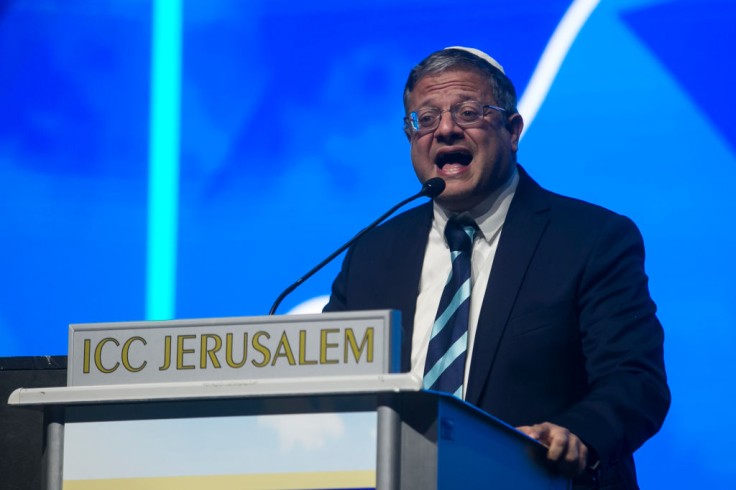Yale Students Stage Pro-Palestinian Protest Over Israeli Minister's Talk
By
On the evening of April 22, 2025, Yale University's Beinecke Plaza became the epicenter of a heated pro-Palestinian demonstration as approximately 200 students erected eight tents to protest an upcoming talk by Israel's far-right National Security Minister, Itamar Ben-Gvir, hosted by the Shabtai society near campus. The encampment, reported by WFSB and the Yale Daily News, aimed to pressure Yale to divest from military weapons manufacturers tied to the Gaza conflict. By 11:30 p.m., the protesters dispersed, citing threats of "retribution" from university administrators, but their resolve to continue the fight remains unshaken.
The protest began around 8 p.m., with students chanting slogans like "Free Palestine" and setting up what they called a "liberated zone." Organizers announced their intent to stay overnight, but the encampment lasted only a few hours before disbanding. "We're here, and we're staying the night," one organizer declared via megaphone, according to the Yale Daily News, before later urging students to rally again the next day. The swift dispersal followed warnings from Yale officials, though no arrests were reported, unlike previous protests that saw nearly 60 students detained.
This was not Yale's first brush with pro-Palestinian activism. Since April 2024, students have repeatedly clashed with administrators over the university's $41.4 billion endowment, demanding transparency and divestment from companies linked to Israel's military actions in Gaza. A week earlier, 44 students were arrested after a three-day encampment on the same plaza. The recurring demonstrations reflect a broader wave of campus activism, with similar protests at Columbia, NYU, and MIT.
The choice of Ben-Gvir, a controversial figure known for his ultranationalist views, as a speaker fueled outrage. Students, organized by groups like Yalies4Palestine, argued that hosting such a figure legitimizes policies they view as oppressive. "We're occupying this space to push Yale to disclose, divest, and reinvest in the New Haven community," an organizer stated, per the Yale Daily News. Community guidelines for the encampment emphasized Palestinian liberation and zero tolerance for discrimination, including antisemitism and Islamophobia.
Yale's response has been measured but firm. A university spokesperson told the Yale Daily News that Yale and its police department have worked to minimize confrontations, but the administration has faced criticism for stifling free speech. Earlier this month, Yale rejected an offer to meet with protesters, prompting accusations of inaction. Meanwhile, Jewish student groups have raised concerns about antisemitic incidents tied to some protests, though organizers insist such acts are by "outside agitators," not representative of their movement.
Hundreds of Yale students gathered at Beinecke Plaza to protest an upcoming talk by #Israel's far-right National Security Minister Itamar Ben-Gvir at the Shabtai society. Protesters set up tents and chanted calls for #Gaza divestment. https://t.co/FGAorxPy4h
— Fact Mirror (@fact_mirrorr) April 23, 2025
The protest's timing, just before Passover, added complexity. Rabbi Tuvia Brander of Young Israel West Hartford called for Jewish unity, while local police increased patrols for safety, per WFSB. Students like Brit Fleck, quoted in a prior WFSB report, emphasized the diverse coalition behind the protests, including students, healthcare workers, and union members united for Gaza.
As Yale navigates these tensions, the broader question looms: Can universities balance free expression with campus safety? With students pledging to escalate their activism, Yale's response will likely shape the national conversation on protest and divestment. For now, Beinecke Plaza remains a battleground for ideas, with students determined to keep the spotlight on Palestine.
© 2025 University Herald, All rights reserved. Do not reproduce without permission.








